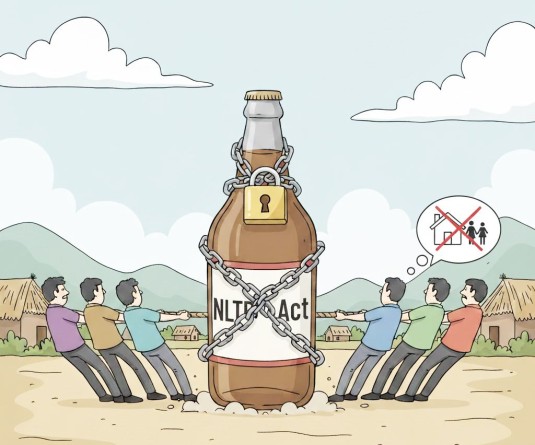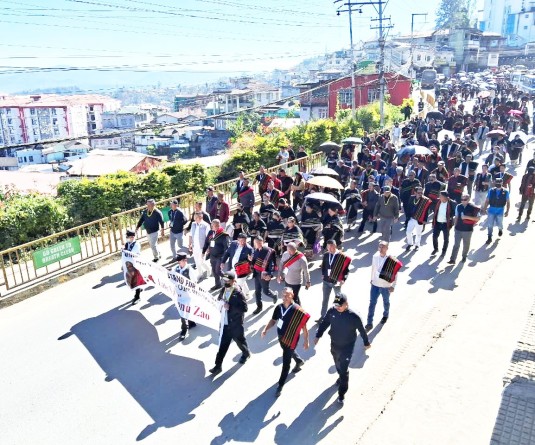Deputy Commissioner of Zunheboto, Dharam Raj, IAS along with others at the Multipurpose Hall Zunheboto on November 18. (Morung Photo)
Morung Express News
Zunheboto | November 18
The Civil Defence Warden and Volunteers Training, organised by the District Commandant, Home Guards, Civil Defence and State Disaster Response Force (SDRF), Zunheboto, commenced on November 18 at the Multi-Purpose Hall, Zunheboto. The six-day training programme will conclude on November 24.
The inaugural programme was chaired by SI Holloto Awomi, while the invocation was pronounced by Honito Zhimo, Home Guards.
Delivering the welcome address, Company Commander L. Vikheto Swu highlighted the importance of the training, stating that during any disaster, the public is often the first to respond. He emphasized that such training is essential to equip participants with first-aid knowledge and skills required to handle emergency situations. Participants, he added, will serve as the first medical responders during disasters. Swu further explained that disasters are broadly categorised into two types: man-made and natural.
The week-long training will consist of practical sessions, lectures, and presentations aimed at strengthening disaster response capabilities among wardens and volunteers.
Volunteers are coming from many different ways from Zunheboto wards currently undergoing the training.
Deputy Commissioner of Zunheboto, Dharam Raj, IAS, in his address, stressed the need for preparedness, especially in view of global conflicts and increasing uncertainties. He noted that several mock drills have been conducted earlier, but more comprehensive preparation is required to address challenges such as lack of shelter and coordinated response mechanisms.
“Disasters and wars are very different,” he stated. “Disasters may occur once, but wars can prolong for months or even years. Therefore, we need better training and preparedness that can be sustained over time.” He encouraged the trainees to make the most of the programme, adding, “Whatever you learn here will help save lives and serve the community. The more we sweat during training, the less we bleed during real emergencies.”


.jpg)


.jpg)
